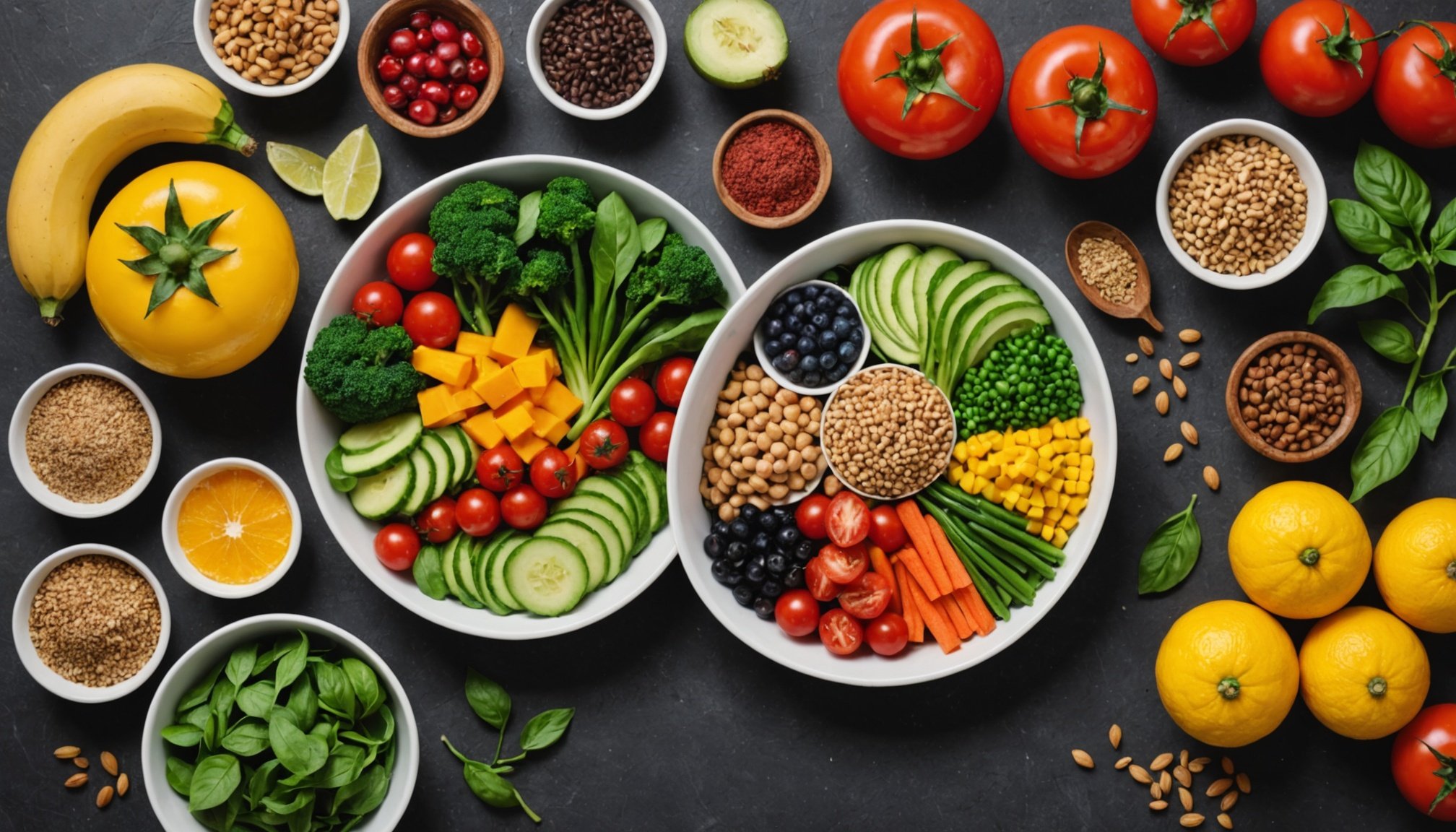Understanding Chronic Inflammation
Chronic inflammation is a prolonged inflammatory response that can have significant health implications if not managed properly. Unlike acute inflammation, which is a short-term response to injury or infection, chronic inflammation persists over time, potentially leading to various diseases. It’s important to recognize the inflammation symptoms that indicate its presence, which often include fatigue, persistent pain, and digestive issues.
The impact of chronic inflammation on health cannot be underestimated. Left untreated, it may contribute to the development of conditions such as heart disease, diabetes, and certain cancers, making it crucial to address these underlying inflammatory processes. This underscores the importance of understanding the long-term consequences of untreated inflammation.
Additional reading : Unlocking the benefits: how indoor vertical gardens enhance urban air and boost mental well-being
Common symptoms experienced due to chronic inflammation can manifest in various ways. Individuals may report joint pain, skin rashes, or even cognitive impairment. Acknowledging these symptoms early can prevent further health degradation and encourage timely intervention to manage the condition effectively.
Emphasizing the importance of addressing chronic inflammation involves exploring solutions such as dietary changes and lifestyle adjustments. By targeting the root causes, it becomes possible to mitigate these health effects, enhancing overall well-being.
In the same genre : Enhancing Vegan B12: Daily Nutritional Yeast’s Role in Elevating Vitamin Levels
Benefits of a Plant-Based Diet in Alleviating Chronic Inflammation
Exploring the relationship between a plant-based diet and its health benefits leads to discovering its potential in managing chronic inflammation. Scientific research has extensively highlighted plant-based diets as effective anti-inflammatory options. Studies demonstrate that consuming foods like leafy greens, fatty fish, and whole grains can significantly reduce inflammation markers in the body. The diets rich in anti-inflammatory foods not only address chronic inflammation symptoms but also contribute positively to overall health.
Scientific Evidence Supporting Anti-Inflammatory Properties
In-depth analysis of various studies supports the plant-based diet’s potential to decrease inflammation. Foods such as turmeric, ginger, and omega-3-rich foods have been shown to alleviate inflammation due to their chemical compositions. Particularly, the phytonutrients and antioxidants present in these foods play crucial roles in reducing inflammation. Key findings from scientific research ascertain the role of nutrients like vitamin C, fibre, and polyphenols in limiting inflammatory responses, thus validating the diet’s effectiveness.
In essence, adopting a plant-based diet enriched with anti-inflammatory foods can be a strategic approach to mitigating chronic inflammation’s health consequences. This nutritional plan not only promotes a healthier lifestyle but also reduces the risk of inflammation-related diseases.
Defining a Plant-Based Diet
A plant-based diet primarily involves foods derived from plants, including fruits, vegetables, nuts, seeds, oils, whole grains, and legumes. Unlike veganism, it doesn’t necessarily exclude animal products, but these are limited. This approach focuses on dietary choices that maximize food intake from non-animal sources, emphasizing sustainability and natural ingredients.
Essential Nutritional Components
Plant-based diets are rich in essential nutrients like fibre, vitamins, minerals, and antioxidants. These nutritional components are vital for promoting heart health, reducing inflammation, and supporting overall wellness. Foods such as leafy greens, whole grains, and nuts provide nutrients like vitamin C, iron, and magnesium, which are significant for maintaining bodily functions.
Common Misconceptions
Despite its benefits, misconceptions abound. One common belief is that plant-based diets lack sufficient protein. However, numerous plant sources, like beans and lentils, meet protein requirements efficiently. Another misconception is potential nutrient deficiencies, particularly vitamin B12 and omega-3 fatty acids. While it’s true these nutrients are more abundant in animal products, supplementation or fortified foods ensure adequate intake. Understanding and addressing these misconceptions allows individuals to explore this dietary approach confidently.
Practical Tips for Transitioning to a Plant-Based Diet
Shifting to a plant-based diet can be both rewarding and challenging. Start by gradually incorporating more plant-based meals into your daily routine. Begin with familiar dishes where you can easily swap animal products for plant-based options, such as using lentils in place of ground meat in stews.
Importance of Meal Planning and Preparation
Effective meal planning is key to a smooth transition. Organize weekly menus that emphasize a variety of fruits, vegetables, legumes, and grains. Prepare meals in advance to reduce reliance on convenience foods that may not align with your dietary goals. This approach not only simplifies your diet change but also enhances nutrition and reduces food waste.
Strategies for Incorporating More Plant-Based Meals
Diversify your intake by experimenting with different recipes and cooking methods. Use herbs and spices to add flavour and discover new ingredients to keep meals exciting. Start by substituting one meal a day with a plant-based option and gradually increase as you find what works for your lifestyle.
By following these steps, transitioning to a plant-based diet becomes manageable and sustainable, paving the way for improved health outcomes and enjoyment in eating.
Addressing Challenges and Misconceptions
Adopting a plant-based diet can present several challenges and misconceptions. One prevalent issue is the belief that plant-based diets lack adequate protein, yet numerous plant sources like quinoa and tofu offer complete proteins. Concerns about potential nutrient deficiencies such as vitamin B12 and omega-3 fatty acids are often raised. While these nutrients are less prevalent in plant foods, options such as fortified products and supplements can effectively address these concerns.
Strategies for Overcoming Barriers
Transitioning to a plant-based diet involves understanding how to meet nutritional needs while navigating social pressures and logistical challenges. Here are some strategies:
- Educate Yourself: Learn about various plant-based protein options and nutrient sources.
- Seek Support: Connect with communities or forums that offer advice and encouragement.
- Plan Meals: Prepare balanced meals that include a variety of food groups to ensure nutrient diversity.
With these approaches, misconceptions and difficulties can be mitigated, paving the way for a healthier lifestyle. Emphasizing the health benefits of this diet encourages long-term adherence and satisfaction.
Delicious Plant-Based Recipes to Reduce Inflammation
Embarking on a plant-based diet can be both exciting and rewarding, especially when it comes to discovering new anti-inflammatory meals. Nutrition-rich recipes offer a delicious way to support your health goals.
Breakfast Ideas
Kickstart your day with nutritious smoothies, combining spinach, kale, and flaxseeds for a potent anti-inflammatory boost. Browse options like Overnight Oats topped with chia seeds, nuts, and berries for a flavourful and nourishing morning meal.
Lunch and Dinner Dishes
Lunchtime can be creative with salads packed with inflammation-fighting ingredients such as arugula, avocado, and roasted chickpeas. For dinner, consider hearty soups and stews like lentil curry or roasted vegetable stew. These dishes are simple yet delicious, providing essential nutrients and flavours.
Snacks and Desserts
Satisfy cravings with healthy snacks such as roasted almonds or turmeric hummus paired with veggies. For a sweet treat, prepare plant-based desserts like chia seed pudding or dark chocolate-covered fruit. Such choices ensure inflammation relief while enjoying delightful flavours.
As you explore these recipes, you’ll find an enjoyable path to managing inflammation through a variety of delicious, plant-based options.
Expert Opinions on Plant-Based Diets and Inflammation
Embarking on a plant-based diet often raises questions regarding its effectiveness in addressing chronic inflammation. Nutritionists and health professionals widely recognize its potential to significantly benefit those suffering from inflammatory conditions. Experts highlight that plant-based diets, rich in whole foods like fruits, vegetables, and legumes, often contain numerous anti-inflammatory components. These foods are high in fibre, antioxidants, and phytonutrients, which play pivotal roles in reducing inflammation markers in the body.
Expert advice suggests that individuals adopting plant-based diets should focus on diversity in their food intake. Consuming a variety of plants ensures the inclusion of essential nutrients crucial for maintaining health and combating inflammation. Health professionals recommend incorporating colourful plates filled with different kinds of fruits and vegetables, as these are rich in diverse phytochemicals.
Research in this field is ongoing, with promising directions aimed at understanding the precise mechanisms by which plant-based diets aid in reducing inflammatory responses. As this area of study evolves, it provides deeper insights into dietary approaches for managing and potentially alleviating chronic inflammation effectively.











